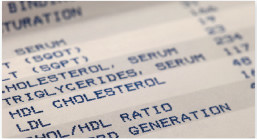
5 timeless habits for better health

What are the symptoms of prostate cancer?

Is your breakfast cereal healthy?

When pain signals an emergency: Symptoms you should never ignore

Does exercise give you energy?

Acupuncture for pain relief: How it works and what to expect

How to avoid jet lag: Tips for staying alert when you travel

Biofeedback therapy: How it works and how it can help relieve pain

Best vitamins and minerals for energy

Should you take probiotics with antibiotics?
Heart Health Archive
Articles
Moderate alcohol consumption associated with heart problems
Many previous studies of adults of all ages have found that "moderate" drinking—one or two drinks per day for men and one drink per day for women—seems to protect against getting heart disease. A recent Harvard study challenges this notion, at least among older adults. The findings, published in the June 2015 issue of Circulation: Cardiovascular Imaging, suggest that even moderate amounts of alcohol are associated with heart damage among adults older than age 65. Researchers correlated weekly alcohol consumption among more than 4,400 seniors (average age 76) with the size, structure, and motion of the heart. The more people drank, the more researchers saw changes on images showing the heart's structure and function. This could mean that any alcohol intake may put older adults at a higher risk of developing heart problems, such as cardiomyopathy (which can lead to heart failure), a condition long associated with heavy drinking.
Image: Thinkstock
Stroke risk when you have atrial fibrillation
Now we have a better tool to calculate your chance of a brain attack if you've been diagnosed with afib.
Atrial fibrillation (afib) is among the most common heart rhythm irregularities. During a bout of afib, the usually rhythmic contractions of the heart muscle's upper chambers (the atria) are replaced by an ineffectual quiver that does not completely move blood out of the heart chamber. As a result, blood can stagnate and form clots. These clots can then travel to the brain and cause an ischemic stroke.
Do blood pressure drugs raise your risk of a fall?
Some research has suggested that older people who take blood pressure medications may be prone to falls, perhaps because the drugs make them dizzy or lightheaded when they stand up. But a new study in the May 2015 Hypertension found no increased risk of falls in people taking blood pressure drugs.
For the study, nearly 600 people with chronic high blood pressure reported their falls to researchers via mail-in postcards and phone calls. Almost half of the participants, whose average age was 78, reported one or more falls during the yearlong study. Neither standard nor high doses of blood pressure drugs were linked to falls. In fact, people who took two commonly prescribed types of blood pressure medications—ACE inhibitors and calcium-channel blockers—had a lower rate of falling compared with people not taking those drugs. Given the known benefits of treating high blood pressure in older people, the authors say, withholding blood pressure medication for fear of causing a fall may not make sense.
Serious side effects are uncommon after heartburn treatment
Serious health problems are uncommon after drugs or surgery to treat chronic heartburn, according to a recent study in Alimentary Pharmacology and Therapeutics. Many men take acid-reducing drugs called proton-pump inhibitors (PPIs), such as omeprazole (Prilosec, others) and lansoprazole (Prevacid), for chronic heartburn. One alternative is a surgical procedure to tighten the entrance to the stomach and prevent acidic stomach contents from backing up into the esophagus.
The new study drew on findings from two different clinical trials that tracked the health of people treated with either drugs or surgery. One trial involved about 300 people who were followed for up to 12 years; the other involved about 500 people who were followed for five years.
Know your triglycerides: Here's why
The level of triglycerides in the blood, like measurements of "bad" cholesterol, helps to gauge your risk for heart disease. Image: Thinkstock |
High levels of these fatty particles in the blood means you may need to step up healthy lifestyle changes.
How a sleep shortfall can stress your heart
Getting less than six hours of sleep on a regular basis can boost levels of stress hormones, which can strain your cardiovascular system. |
Find out if your sleeping habits put you at risk—and what to do about it.
Ask the doctor: Donating blood if you have heart disease
If you have heart disease, you must meet certain criteria to donate blood. Image: Thinkstock |
Q. I have heart disease but would like to donate blood. Is it safe?
Height and heart disease: A genetic connection
Shorter people are more likely than taller people to have clogged heart arteries. New research suggests that part of the reason for this long-held observation lies in our genes.
Earlier research identified 180 spots on the genome that vary according to a person's height. For the new study, researchers scrutinized the genes of nearly 200,000 people to see whether those with genetic traits for short stature also had a higher risk for heart disease. For a person who is 2.5 inches shorter than average, the risk of heart disease increases by about 13.5%. The shorter a person is, the greater the effect. A small number of the height-related genetic variants had clear connections to heart disease, such as links to some genes that affect levels of artery-clogging fats in the blood. But these accounted for only a third of the effect. That means that most of the heart disease risk related to being short is tied to other factors that remain elusive. The findings appeared in the April 23, 2015, New England Journal of Medicine.

5 timeless habits for better health

What are the symptoms of prostate cancer?

Is your breakfast cereal healthy?

When pain signals an emergency: Symptoms you should never ignore

Does exercise give you energy?

Acupuncture for pain relief: How it works and what to expect

How to avoid jet lag: Tips for staying alert when you travel

Biofeedback therapy: How it works and how it can help relieve pain

Best vitamins and minerals for energy

Should you take probiotics with antibiotics?
Free Healthbeat Signup
Get the latest in health news delivered to your inbox!
Sign Up










